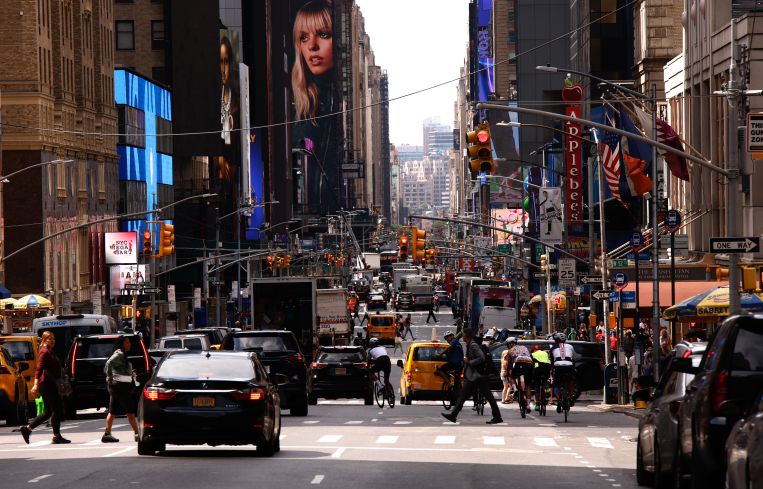MTA Board OKs $15 Toll for Manhattan Drivers South of 60th Street
Board officially approved long-discussed congestion pricing plan Wednesday
By Mark Hallum March 27, 2024 12:54 pm
reprints
The Metropolitan Transportation Authority board hit the ignition on the pricing structure to toll drivers entering certain parts of Manhattan, a plan that has been deliberated for years.
Congestion pricing will charge standard vehicles $15 to enter Manhattan below 60th Street, and trucks will be charged between $24 and $36 to drive through that zone.
The Traffic Mobility Review Board (TMRB), made up of a number of real estate leaders, has been sorting through the details to optimize the program, which is expected to generate $15 billion for the MTA’s improvement plans over five years.
The funding will upgrade MTA’s infrastructure and rolling stock as well as make possible projects like the second phase of the Second Avenue Subway, an extension from 96th Street to 125th Street.
Congestion pricing was proposed by disgraced former Gov. Andrew Cuomo in 2017 and passed into law by the New York State Legislature in 2019. The federal government approved it in June 2023.
The MTA board signed off on the plan in December, which kicked off the TMRB’s process of creating a price structure. Its 11-to-1 vote in the affirmative Wednesday means drivers could be paying the tolls as early as June 2024.
Government-owned vehicles and school buses with contracts with the New York City Department of Education will be exempt, while the board recommended that the price increase should affect only customers of for-hire vehicles instead of the drivers.
Low-income drivers can apply for a 50 percent discount from the congestion charge.
“We wanted to provide as few exemptions as we possibly could and that’s really for two reasons. One, the more exemptions, the higher the base toll, and we wanted to keep the base toll as low as we possibly could,” Carl Weisbrod, TMRB chair, former head of the New York City Department of City Planning and current senior adviser at HR&A Advisors said during the meeting. “But secondly, the more exemptions that we grant, the more people who don’t get exemptions will feel that they’re being left out.”
Other members of the board included Real Estate Board of New York President Emeritus John Banks; Velez Organization President Elizabeth Velez; and Kathryn Wylde, the president and CEO of the Partnership for New York City.
RXR CEO Scott Rechler stepped down from the board in June 2023.
The Cuomo administration initiated this iteration of congestion pricing during the “summer of hell” transit crisis, but other attempts to implement a congestion toll go back as far as former Mayor Michael Bloomberg’s administration and the late Mayor Ed Koch.
Cuomo, who was forced out of office by sexual assault allegations, said in 2017 after a number of major transit meltdowns that congestion pricing was an idea “whose time had come.”
The plan is not without its detractors though, and it has been hit with a number of lawsuits to put the brakes on it, most recently by the public school union and Staten Island borough president who argue rerouted vehicles displaced by the tolling will add more air pollution to schools in those neighborhoods.
Mark Hallum can be reached at mhallum@commercialobserver.com.



